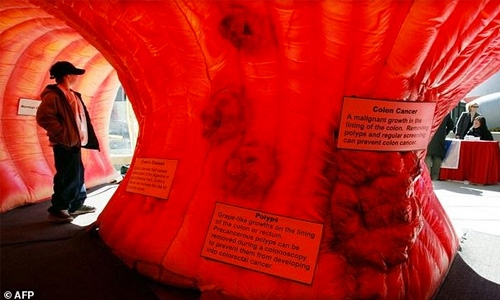Colorectal cancer rates rising in white Americans under 55
Washington : The number of white Americans under 55 dying from colorectal cancer has been increasing since the mid-2000s after decades of downward movement, new research published Tuesday showed, though rates among other races remained static or declined.
Researchers from the American Cancer Society examined mortality rates among 20-54 year olds between 1970 and 2014 using data from the National Center for Health Statistics (NCHS), a period in which 242,637 people died of the disease.
From 1970 to 2004, the overall mortality rate decreased from 6.3 to 3.9 per 100,000 before rising again by one percent per year and reaching 4.3 per 100,000 in 2014, according to the study which was published in Journal of the American Medical Association.
The increase was limited to whites, among whom mortality rates increased by 1.4 percent per year, from 3.6 in 2004 to 4.1 in 2014.
For blacks, the rate of mortality declined steadily from 8.1 percent in 1970 to 6.1 percent in 2014.
For other ethnic groups, the combined mortality rate declined from 1970 to 2006 and then stabilized.
In the white sample, mortality remained unchanged among 20-29 year-olds between 1988 and 2014 but increased by 1.6 percent per year between 1995 and 2014 among 30-39 year-olds and 1.9 percent annually among the 40-49 age group between 2005 and 2014.
The authors noted "that these disparate racial patterns are inconsistent with trends in major risk factors for colorectal cancer like obesity, which is universally increasing."
They were also surprised by the progression of colorectal cancer mortality in those aged over 50 because screening starting around age 50 has been recommended for decades. More patients are cured when the disease is detected early.
The researchers, led by Rebecca Siegel, added the rising mortality rates "strongly suggests that the increase in incidence is not only earlier detection of prevalent cancer, but a true and perplexing escalation in disease occurrence."
They called for more screening across age-groups with a timely follow-up of symptoms.
Related Posts

